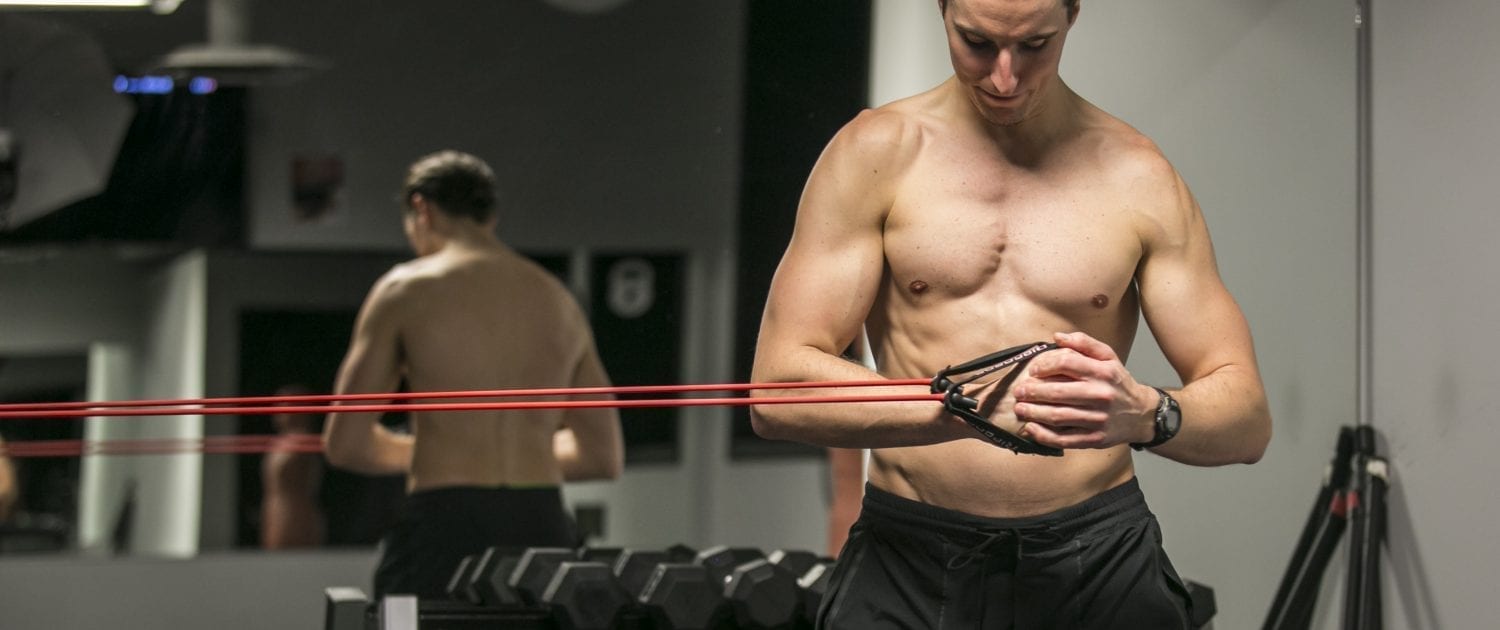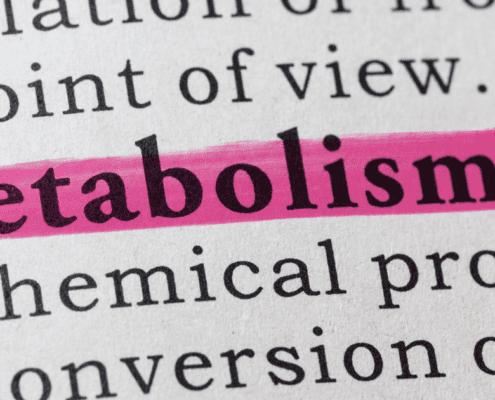What To Expect When You’re Building Muscle, Losing Fat, Or Both
Sept 18, 2019 by Michael Fouts
Estimated reading time: 5 min
I’m sure you’ve heard something along the lines of:
“My friend did Keto and lost 5 pounds in the first week, and 30 pounds in a month!”
“Johnny used to be overweight, but he started hitting the gym and now he’s jacked!”
Or something similar to building muscle, losing fat, or both. In this post I’m going to outline what can happen in these situations and help you understand what is realistic so that you can better manage your expectations.
1. Losing Fat
Lets first talk about losing fat. This section is being described from the standpoint of an individual being in a caloric deficit – consuming less calories then the body is using.
Important point #1: Rate of weight loss
Healthy and sustainable weight loss is generally understood to be around 0.5-2% total body weight per week.
For most people this is around 1-2 lbs./wk. The best rate of weight loss to optimize fat loss and muscle retention is usually around 0.5-1%.
From my experience 2% is pretty aggressive and not sustainable long-term, mostly because we are not lab rats and have lives outside of exercising and eating in a consistent caloric deficit. Also, at 2% there’s a chance you’re losing muscle – which isn’t good, or beneficial in enhancing your physique.
Important point #2: Can You Build Muscle And Lose Fat?
In most cases you can’t, it will depend on a few things:
- Your weight training experience: those that are new to weight training can gain muscle while experienced lifters likely won’t.
- How aggressive you are approaching weight loss. As mentioned earlier, 1% bodyweight per week is ideal for retaining muscle base and losing fat. If you choose a goal sub 1% then there is definitely a chance you can put on muscle while losing fat. More than 1% there is a good chance you’ll end up losing muscle, in addition to the intentional fat loss.
- Steroids. I won’t get into steroid use because I honestly don’t know much about their use and how to use them properly – mostly because I don’t intend to ever use them or counsel a client on how to use them. What I do know is that they mobilize fat stores and are very anabolic, so they’ll help you add muscle and lose fat at the same time.
- Your genetics. These play a role in basal, and training associated, muscle anabolism (building up) and catabolism (breaking down). Some are more hardwired to maintain muscle while others aren’t. So, results will vary person-to-person.
All of the above being said, one thing I want to point out:
It’s common for people to think they are building muscle when they are losing weight, however what’s often happening is they are just getting enhanced muscle definition – they are losing fat around their muscle and no appreciable muscle is being built.
For the record, this isn’t a bad thing.
Other Things To Consider:
Feeling Hungry
It’s normal to feel hungry, more so in the first 2-3 weeks of when you start introducing a caloric deficit and are eating less. I won’t get into the finer details of why this is (your stomach isn’t being stretched as much, you’ve been conditioned to eat a certain amount of food and at set intervals, etc.), but just know that the first 2-3 weeks can be uncomfortable as you adapt to eating less and it becomes the “new normal” for a bit. That, and this feeling of hunger should be more of a thing between meals – eg. you might feel hungry an hour before a meal, not an hour after a meal – if you are feeling hungry you either didn’t eat a proper meall or this is your appetite and not hunger (see next point about this).
Tip #1: at your meals aim to eat to about 80% fullness, don’t look to “stuff” yourself.
Tip #2: optimize volume of food and low caloric density at meals to help you feel more full with less calories. Two great things to add to all meals: salad, soup.
Mental Struggle
There are going to be times where you’re going to have a mental battle, like in the first few weeks mentioned above but also during times when you’ve been conditioned to eat (like when sitting down to watch TV and you want to snack). Learn to recognize the signals your brain might “improperly” send you. By this I mean, are the hunger signals your brain is sending you actual hunger signals? Or, are they brought on by: boredom (going to the pantry for the nth time to take a mental break), habit-associated (wanting to snack while watching T.V., etc.), or sensory-related (seeing or smelling cinnamon buns, etc.)?
Tip #1: If you’re a snack while watching TV type, change your snack instead of trying to not snack. Try low-calorie popcorn, or veggies and dip like baby carrots and snap peas.
Energy Conservation
Your body will try to conserve energy where it can, which can result in the following things happening:
- Lethargy: your body is going to intentionally slow you down to save some energy, eg. you’ll feel lazy and might just want to sit on the couch instead of going for a workout/walk. This isn’t “starvation mode” and doesn’t mean you can’t lose weight, but it does make things a little more tricky.
- Poor Sleep: It’s common to have some problems sleeping, especially with more of an aggressive diet and the longer you’ve been doing it. From an evolutionary standpoint the hypothesis behind this is that it’s more important for survival to seek food than to sleep, therefore when you’re not getting adequate energy intake the brain won’t be as restful.
- Feeling Cold: It’s common that some people have a hard time staying warm if not clothed properly. This is your body conserving energy, your extremities are getting less blood to conserve heat and will feel cold. If this happens to you, just make sure you have layers to help accommodate this.
Strength
You can expect that your strength will suffer, either not getting stronger or losing strength alltogether. So, if you’re tracking your lifts don’t be discouraged that the numbers aren’t going up – this is to be expected.
Factors Working Against You
You should know that there are a few factors working against you, some of which are out of your control:
- Sleep. Based on the point mentioned above this might sound like a catch 22. But just know that if you’re not making sleep a priority and getting enough of it, then you aren’t giving yourself the chance to maximally lose fat and/or build muscle. For more information read this post about sleep that I wrote.
- Ageism. As you age, your metabolism slows; this affects your ability to create as big of a deficit.
- Current amount of muscle and your body size; this could also be labeled as sexism & statistics. Males can create a larger caloric deficit since they have more muscle (most males anyways…) which allows them to eat more without gaining weight. In theory 1 lb. is the same for male and females. Statistically if you are consuming 3000 calories a day as maintenance, reducing your intake by 17% = 500; If you are only consuming 2000 calories a day, 17% = 340 calories. It’s easier for someone to reduce their calories if their “maintenance” intake is higher. This typically favours men.
- Alcohol. If you are drinking alcohol, you aren’t using your caloric budget for the day most effectively. So if you decide to enjoy a few drinks here and there, understand that it’s going to effect your progress; especially if you get drunk, which results in dehydration, often excess calories, etc. If you must drink, read this.
2. Building Muscle
Now lets talk about building muscle. All of the below is being described from the standpoint of an individual being in a caloric surplus, either slight surplus or gross – consuming more calories then the body is using.
With Mental Struggle and Energy Conservation, it should make sense that these are no longer issues. Your body is getting enough food (energy), so there won’t be things happening to encourage more food intake.
Important point #1: Rate of Weight Gain
In terms of building muscle, It’s generally accepted that:
For those new to weight training: 0.25-0.5% bodyweight per week
For those more experienced with weight training: 0.25-0.5% bodyweight per month (to find your weekly rate divide by 4)
This rate of weight gain is based on the premise of not trying to gain too much fat, and that you’re working out at least 3 times a week. More than this is possible, but more weight is typically fat gain; exceptions being those new to lifting and training in excess of 3x per week.
Other things to consider:
Strength
Provided you have the right workout variables in place, like a proper strength program would, you should see almost all of your lifting numbers increase pretty regularly.
Libido
Well, yeah that increases. You’ll be pretty charged up and your significant other – if you currently have one – will be pleasantly surprised.
Sleep
Your sleep quality, ability to fall asleep and total time in deep sleep, should be good. If you aren’t getting 7 hours of sleep a night or more, you need to start.
Factors Working Against You
Just like with fat loss, there are also some things working against you that will affect your ability to put on muscle. They are:
- Lifestyle: literally everything you do besides working out and sleeping are going to hinder your ability to build muscle. If you have an active job, active lifestyle (play sports, like going for runs, etc.) you are “tapping” into energy and time that would otherwise be use for muscle regeneration and growth.
- Time allocated for training: 1. Your muscles grow in response to mechanical and metabolic stress you impose on them (for the most part). When you first start training, it’s easy to significantly change the mechanical (weight you are lifting) and metabolic stress (think muscle fatigue / “pump”). However, over time there is a law of diminishing returns. At some point in your training “career” it’ll be hard to significantly increase mechanical and metabolic stress. For example, going to the gym 2 times per day, 5 days a week would be an absolute maximum for most. So, overtime it becomes harder to increase that mechanical and metabolic stress and the rate of muscle gain slows – at least naturally.
The above was not an exhaustive list of all the things you should be aware of when looking to Build Muscle or Lose Fat, but many of the more common and main points were addressed.
Got questions? Send me a message.
-Mike






